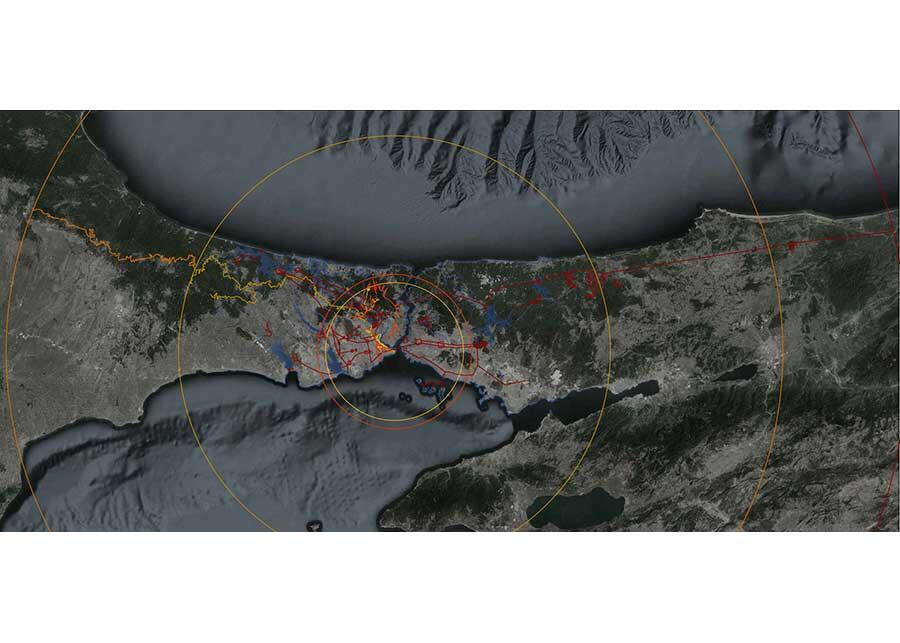
Instructor: Sibel Bozdogan and Cemal Kafadar
Course: STAGING THE CITY: URBAN FORM AND PUBLIC LIFE IN ISTANBUL
Students: Marysol Rivas Brito
https://issuu.com/marysol.rivas.brito/docs/wet_politics_research
Since the beginning of civilization, water supply has dictated a great part of urban development and expression. To detain the control over this strategic resource means to control vital dynamics of the city, and consequently to interfere spatially in population behavior. Due to the decreasing availability and crescent demand for water, growing cities historically had to go each time further out of their own limits in order to guarantee the necessary amount of water for daily needs of urban life, operating at scales affordable only for the few economically prosperous ones.
The aim of the present work is to study how the political agendas dictated the physical distribution of water across the city of Istanbul, and how it influenced the urban development of the city through different periods and contexts.
In order to properly approach the subject, some key periods were chosen both for being representative of political changes and for having available documentation. The first period chosen was the early Roman period, when Constantine the Great establishes the city as the capital of the Byzantine Empire (Eastern Roman Empire), resulting in huge city growth and the necessity to expand the existing system. The next occasion chosen were Sinan’s interventions during the Caliphate of Suleiman the Magnificent, when the water supply system was greatly amplified. As a comparative analysis to the two previous systems, the Melen system, under construction since 2007 with Japanese financing, was chosen as a contemporary example from the Republic of Turkey.
The research was developed mainly on the basis of map interpretations; historical descriptions and previous research on the theme were also consulted and analyzed.